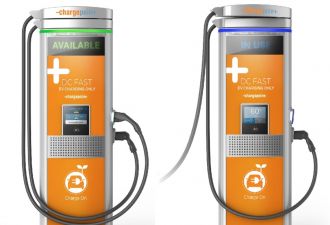Think of Glori Energy as the Hansel and Gretel of enhanced oil recovery.
The company, formerly Glorioil, is experimenting with a technique for exploiting microbes and their ravenous appetites to help pull more oil out of existing oil wells. No, petroleum hasn’t suddenly become green, but the technique could help postpone the need to explore for oil in sensitive locations like the Arctic or farther offshore in the Gulf -- or at least make recovery in existing wells more economical than sinking new wells.
“Globally, around 60 [percent] to 70 percent of oil in existing wells never gets recovered,” said CEO Stuart Page.
And it all starts with a specially prepared buffet. Glori essentially studies the ecosystem and geological structure of an existing well for months. Ecosystems vary from well to well. Glori doesn’t have to identify the individual microbial species inside the well, just the “consortia functionality,” or how the different groups interact. Pretty much every oil well has colonies of bacteria: they feed off the oil in the rock and form colonies on the surface of the oil.
After studying the environment, the company then concocts a nutrient-rich diet for the microbes.
“We are like McDonalds. We make them fat,” he said.
The sudden surge in food leads to a population explosion. Bacteria begin to cover virtually any oil pocket. Genetically modified organisms or transplanted organisms are not required.
Water then gets pumped into the well. Water or carbon dioxide are traditionally used to flush oil out of pockets in the rock in enhanced oil recovery. Unfortunately, it’s also not incredibly efficient. “You have to use 98 barrels of water to get two barrels of oil,” he said.
Having the oil covered in microbes prior to the injection of water eases the process and increases the yield. It is similar conceptually to how small bits of rock loosened by lichen or moss will wash away in a storm before solid rock will, or how glue covered in dust can’t adhere like it should.
“It makes the oil more mobile,” he explained.
The superabundance of microbes also helps channel the water toward pores and deposits with more, rather than less, oil.
And after the oil is depleted, oil well owners do not have to worry about super colonies of microbes growing underground. With their food supply of oil and nutrients gone, the colonies die out.
To Serve Microbes. It’s a cookbook!!!
In a typical oil well, 10 percent to 15 percent of the oil might come out through conventional drilling. Standard enhanced oil recovery with water or carbon dioxide can boost that by 10 percent to 20 percent. Glori Energy believes it can boost recovery by another ten-percent-plus beyond that. (Editor’s note: Saudi Arabia, though, likely won’t invest. About 60 percent to 65 percent of the oil in Saudi wells can be extracted, according to the company.)
The company’s technology derives from independent research conducted in India and Argentina and by StatOil, the Norwegian giant. An oil company is currently testing it out in a well in Kansas. Glori Energy also recently acquired its own well in Kansas to test the process.
Industrial microbiology -- getting GMO and non-GMO organisms to do our dirty work -- has been one of these promising, but far-off, pockets of green technology for years. Some companies have moved into production with microbial pesticides, but most companies trying to produce fuel or chemicals with microbes are, like Glori, still in the testing phase. But when you think about it, microbes should play a huge role in the future. They are little chemistry factories.
Kleiner, Perkins and Energy Technology Ventures, a joint venture of GE, ConocoPhilips and NRG, have invested in the company. Synthetic Genomics, which counts Draper Fisher Jurvetson as an investor, is working on a microbial extraction concept with BP.



